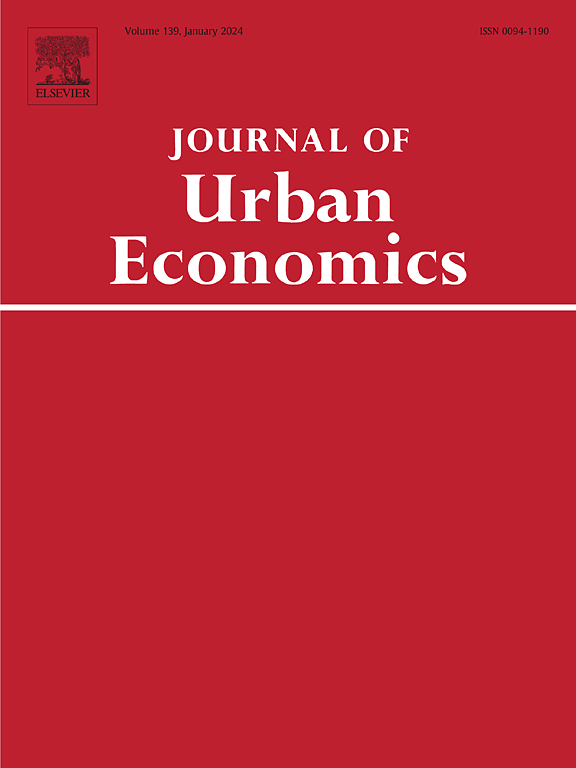Analyzing political preferences of second-generation immigrants across the rural–urban divide
IF 5.7
1区 经济学
Q1 ECONOMICS
引用次数: 0
Abstract
This paper analyzes the political preferences of immigrants’ offspring in relation to the rural–urban divide of political preferences in European countries. Using data on individual voting behavior and political preferences in 22 European countries between 2001 and 2017, we analyze whether second-generation immigrants have different preferences on a left–right political spectrum, relative to other natives. We show that they have a significant left-wing preference after controlling for a large set of individual characteristics and origin fixed effects. In spite of their concentration in urban areas, where native residents are also more left-leaning than the average, this difference is not a result of their location, as the difference is particularly strong in non-urban areas. Second-generation immigrants are also more likely to be politically active, to participate in demonstrations or petitions and to exhibit stronger preferences for inequality-reducing government intervention, internationalism and multiculturalism. Growing up with an immigrant father experiencing challenges in his labor market integration seems to be the stronger predictor of the left-wing preference of second-generation.
分析跨越城乡鸿沟的第二代移民的政治偏好
本文分析了移民后代的政治偏好与欧洲国家城乡政治偏好差异的关系。利用2001年至2017年间22个欧洲国家的个人投票行为和政治偏好数据,我们分析了相对于其他本地人,第二代移民在左右政治光谱上是否有不同的偏好。我们发现,在控制了大量的个体特征和起源固定效应后,他们有显著的左翼偏好。尽管他们集中在城市地区,当地居民也比平均水平更左倾,但这种差异并不是他们所处位置的结果,因为这种差异在非城市地区尤为明显。第二代移民也更有可能在政治上活跃,参加示威或请愿活动,并对减少不平等的政府干预、国际主义和多元文化主义表现出更强的偏好。与一个移民父亲一起成长,在融入劳动力市场方面遇到挑战,似乎更能预测第二代人的左翼偏好。
本文章由计算机程序翻译,如有差异,请以英文原文为准。
求助全文
约1分钟内获得全文
求助全文
来源期刊

Journal of Urban Economics
Multiple-
CiteScore
10.60
自引率
4.80%
发文量
64
期刊介绍:
The Journal of Urban Economics provides a focal point for the publication of research papers in the rapidly expanding field of urban economics. It publishes papers of great scholarly merit on a wide range of topics and employing a wide range of approaches to urban economics. The Journal welcomes papers that are theoretical or empirical, positive or normative. Although the Journal is not intended to be multidisciplinary, papers by noneconomists are welcome if they are of interest to economists. Brief Notes are also published if they lie within the purview of the Journal and if they contain new information, comment on published work, or new theoretical suggestions.
 求助内容:
求助内容: 应助结果提醒方式:
应助结果提醒方式:


